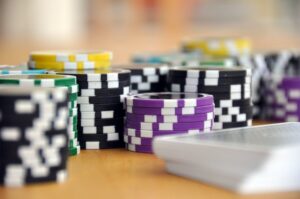 Once described by the High Court of Australia as the ‘highest of high rollers’, Harry Kavakas was, in his heyday, an eminently successful property salesman. He accrued a multi-million fortune selling houses on the Gold Coast in Queensland, in northeastern Australia, but frittered away everthing he had, and more, at the Crown Casino in Melbourne. In a 14-month spell between June 2005 and August 2006, Kakavas staked an eye-watering A$1.5 billion on baccarat, betting up to A$300,000 a hand, and lost A$30 million, including $A2.3 million in less than half an hour on once occasion.
Once described by the High Court of Australia as the ‘highest of high rollers’, Harry Kavakas was, in his heyday, an eminently successful property salesman. He accrued a multi-million fortune selling houses on the Gold Coast in Queensland, in northeastern Australia, but frittered away everthing he had, and more, at the Crown Casino in Melbourne. In a 14-month spell between June 2005 and August 2006, Kakavas staked an eye-watering A$1.5 billion on baccarat, betting up to A$300,000 a hand, and lost A$30 million, including $A2.3 million in less than half an hour on once occasion.
Kavakas later made legal history when, in 2007, he sued Crown Casino for ‘unconscionable conduct’. Kavakas’ laywers argued that Crown Casino has exploited his ‘pathological urge to gamble’ by providing him with complimentary accommodation, food and drink and travel, plus so-called ‘lucky money’, at up to A$50,000 a time, to a total value of nearly A$10 million. Crown Casino, on the other hand, argued that Kavakas presented himself not as a problem gambler – which, by his own admission, he was – but rather as an affluent businessman, who could afford to gamble the astronomical sums involved.
Kavakas’ claim for A$20.5 million in damages for his net losses, heard in the Supreme Court of Victoria, was dismissed on the grounds that Crown Casino was legimately competing for his business and Kavakas had, in fact, demonstrated that he found it possible to refrain from gambling. Kavakas subsequently appealed to the Court of Appeal in Victoria and, finally, to the High Court of Australia but, in both cases, his appeal was unanimously dismissed.
